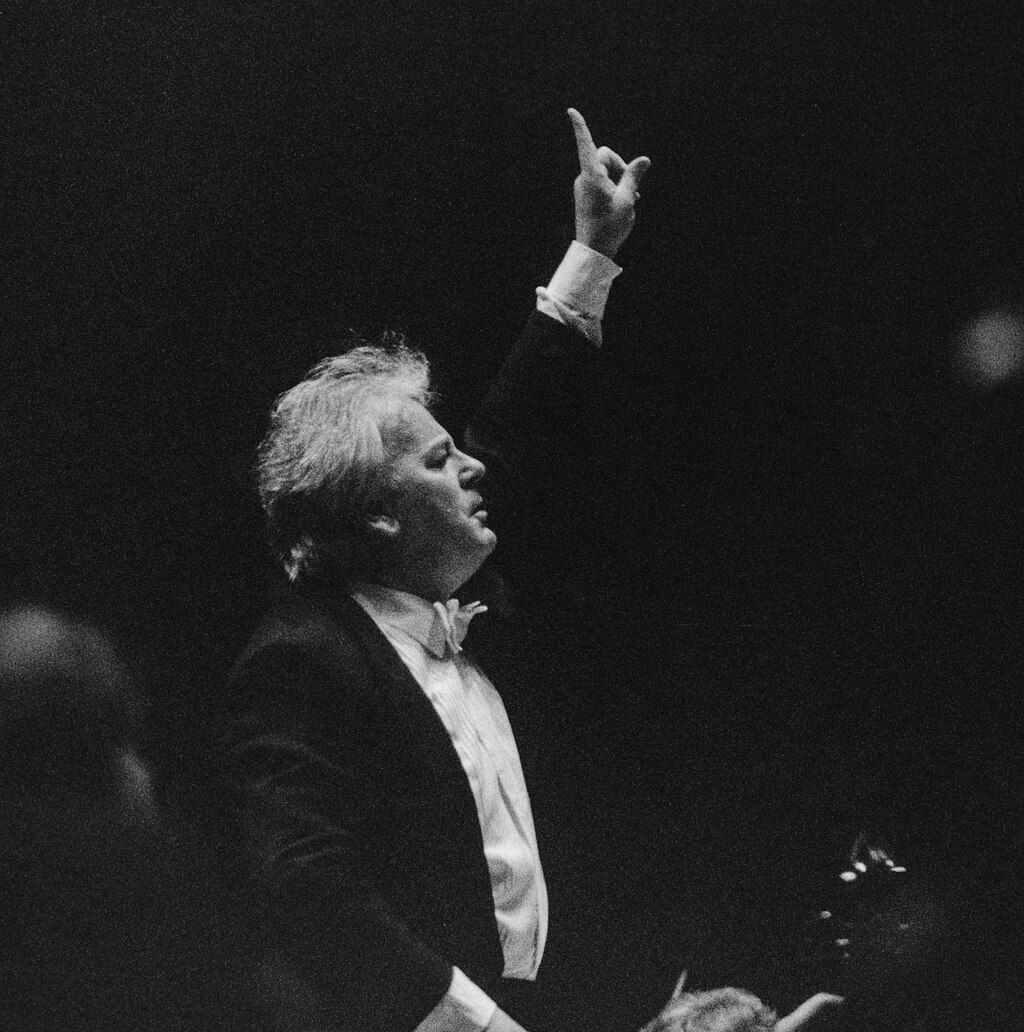
The world of classical music is in mourning after losing two of its legends in the span of a week: James Loughran, the renowned conductor, and Jodie Devos, the acclaimed soprano singer. loughran passed away at the age of 92 of natural causes, while Devos died at just 35 after battling breast cancer. Both artists were praised throughout their careers for their talent and innovation and left a profound impact on the music world. What follows is a look back at their rich lives and careers.
James Loughran was born on June 30, 1931, in Glasgow. He remained in Scotland for his education, studying at St. Aloysius College—whose alumni include composer Fred Morrison and writer Armando Iannucci—and later attended the University of Glasgow to study law and economics.
While studying piano, Loughran entered the Philharmonia Conducting Competition and won first place in 1961, attracting the attention of the Bournemouth Symphony Orchestra, which invited him to join as assistant conductor. Three years later, at the age of 33, Loughran gave his first performance at Covent Garden and was personally selected by Benjamin Britten to be the artistic director of the English Opera Group (which eventually became the English Music Theatre Company and disbanded in 1980). Between 1977 and 1985, Loughran conducted the Last Night of the Proms five times and is remembered for introducing the song “Auld Lang Syne” to the event—a tradition that continues today.
Perhaps the most significant chapter of Loughran’s career was his collaboration with the Hallé Orchestra, where he served as principal conductor from 1971 to 1983—a period during which the orchestra celebrated its 125th anniversary.
Throughout his career, Loughran conducted many leading orchestras, including the Bamberg Symphony, Aarhus Symphony Orchestra, Los Angeles Philharmonic, Royal Liverpool Philharmonic, Dallas Symphony Orchestra, and Vienna Symphony. He received numerous honors, including the CBE in 2010 and an honorary fellowship at the Royal Conservatoire of Scotland. Many of these collaborations were preserved in recordings. In fact, Richard Osborne, reviewing Beethoven’s Symphony No. 6 (“Pastoral”) for Gramophone in October, praised Loughran:
“James Loughran showed equal assurance with the Liverpool Philharmonic. In 1961, at the age of 29, he won the first Philharmonia conducting competition, judged by Klemperer, Boult, Giulini, and Walter Legge. That this Pastoral recording is featured alongside recordings by Loughran’s former judges is a testament to their discernment—and to Loughran’s consistent excellence in conducting Beethoven and Brahms.”
James Loughran is survived by his son Angus and two grandchildren.

Jodie Devos had been battling breast cancer for some time. She had recently performed at Théâtre des Champs-Élysées in Paris on April 30, before her condition rapidly worsened. Born in Libramont-Chevigny, Belgium, Devos studied at the Institut de Musique et de Pédagogie in Namur and later at the Royal Academy of Music in London.
In 2014, she won second prize and the Audience Award at the Queen Elisabeth Competition in Brussels. Her breakout recording was the electrifying Offenbach Album (Alpha, 3/19)—the first of three solo albums she released on Alpha Classics. Edward Seckerson praised it:
“Devos delivers everything expected of her, and more, with the effortless grace of someone who understands how important it is to hide difficulty.”
The album was selected as a Gramophone Editor’s Choice and was a finalist for the 2019 Gramophone Awards.
Devos’s second solo album, And Love Said… (Alpha, 3/2021), a collection of English songs accompanied by pianist Nicolas Krüger, was again chosen as an Editor’s Choice. Didier Martin of Alpha Classics described the album as “an intimate portrait of Jodie, tracing her journey from her native Belgium to England, where she studied, and to France, where she settled.” Hugo Shirley called it “a recital full of life and love—at once charming, beguiling, and moving.” The album ended with a hauntingly tender rendition of Freddie Mercury’s You Take My Breath Away, whose simplicity and softness now feel all the more poignant.
Her third and, tragically, final solo album was Lost Jewels (Alpha, 11/2022), a tribute to the 19th-century Belgian coloratura soprano Marie Cabel, described by Mark Pullinger as “a treasure trove of rediscoveries.”
On stage, Devos’s wide-ranging repertoire included leading roles in Delibes’s Lakmé, Adele (Die Fledermaus), Alice (Count Ory), Rosina (The Barber of Seville), Eurydice (Orpheus in the Underworld), Susanna (The Marriage of Figaro), the Queen of the Night (The Magic Flute), Zerbinetta (Ariadne auf Naxos), Gilda (Rigoletto), and Marie (The Daughter of the Regiment).
Didier Martin said, “This news is so unreal and unfair that it has shocked us all deeply. Jodie was only 35 and at the peak of her talent. We know how loved she was by her colleagues, the entire music community, and of course, the public.” According to Martin, in addition to her solo albums, Devos was “an eager contributor to many other recordings with friends and fellow musicians who all admired her extraordinary talent and kindness.
